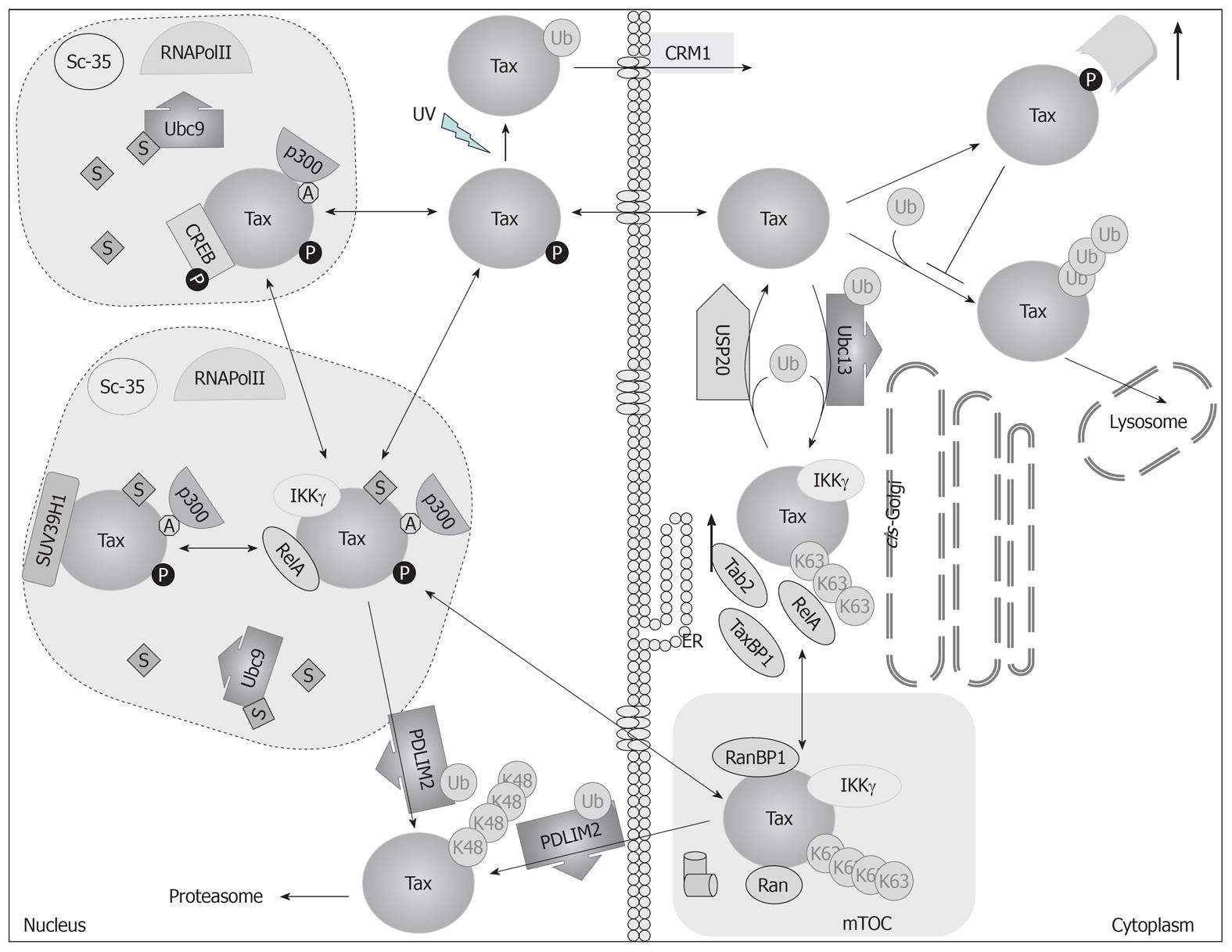Copyright
©2012 Baishideng.
World J Virol. Aug 12, 2012; 1(4): 115-130
Published online Aug 12, 2012. doi: 10.5501/wjv.v1.i4.115
Published online Aug 12, 2012. doi: 10.5501/wjv.v1.i4.115
Figure 1 Diagrams representing Akt signaling alterations in adult T-cell leukemia/lymphoma cells under treatment with heat shock protein 90 inhibitors (A) and Tax contribution on Akt signaling (B).
A: In adult T-cell leukemia/lymphoma (ATLL) cells, geldanamycin-derivates inhibition of heat shock protein 90 (Hsp-90) promotes Akt inactivation and hence GSK3 activation for β-catenin degradation, and cell death; B: Activation of Jak/Stat or T cell receptor signaling or Tax expression promote phosphatidylinositol-3-kinase (PI3K) activation, Akt activation and Mdm2 activation with subsequent inactivation of Bad and degradation of forkhead box O-4 (FoxO-4) and p53. Question marks represent hypothesis; P: Phosphorylation; Ub: Ubiquitin; black thin arrows represent activation, grey thin arrows represent enzymatic reactions; dashed arrow, inhibition; protein overexpression in infected cells is represented by thick arrow.
- Citation: Bidoia C. Human T-lymphotropic virus proteins and post-translational modification pathways. World J Virol 2012; 1(4): 115-130
- URL: https://www.wjgnet.com/2220-3249/full/v1/i4/115.htm
- DOI: https://dx.doi.org/10.5501/wjv.v1.i4.115









